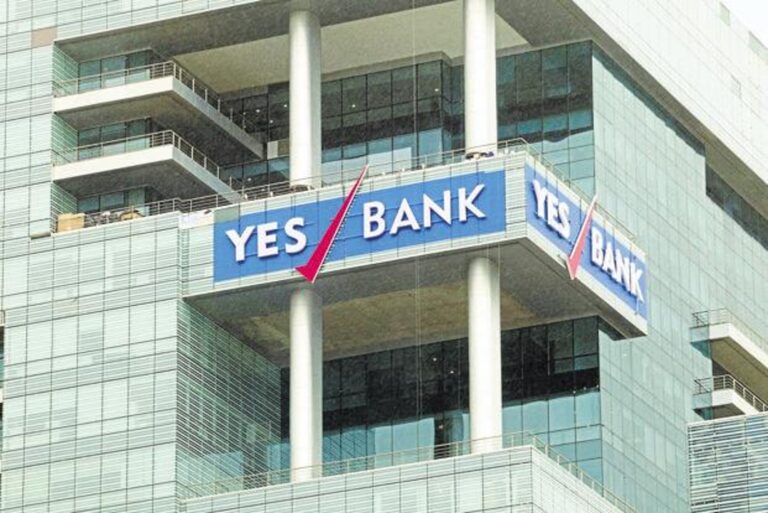MUFG and SMBC’s interest in acquiring a majority stake in Yes Bank is seen as a strategic move to expand their presence in the Indian market. With India’s economy poised for robust growth, international banks are increasingly looking to invest in the country’s financial sector. The potential acquisition of Yes Bank would provide MUFG and SMBC with a strong foothold in India and access to a large customer base.
The interest shown by a company from the Middle East further highlights the attractiveness of Yes Bank as an investment opportunity. The Middle East has been actively seeking investment opportunities in India, particularly in sectors such as banking and infrastructure. A potential partnership between a Middle Eastern company and Yes Bank could bring in additional capital and expertise, further strengthening the bank’s position in the market.
The State Bank of India-led consortium, which provided a bailout to Yes Bank in 2020, is now exploring options to sell its stake. This decision comes as the bank’s financial health has significantly improved since the bailout, with its market value reaching Rs 69,762 crore. Selling a majority stake in Yes Bank would not only allow the consortium to recover its investment but also pave the way for new investors to inject fresh capital into the bank.
While MUFG and SMBC are carefully evaluating the opportunity, no final decision has been made yet. The banks recognize the potential of the Indian market and are keen to strengthen their presence in the country. India’s growing middle class, increasing urbanization, and government initiatives to promote digital banking have created a favorable environment for banks to expand their operations. Acquiring a majority stake in Yes Bank would position MUFG and SMBC as key players in India’s banking sector and enable them to tap into the country’s immense growth potential.
Overall, the interest shown by MUFG, SMBC, and a Middle Eastern company in acquiring a majority stake in Yes Bank reflects the growing attractiveness of the Indian market. With the potential for strong economic growth and a favorable regulatory environment, international banks are actively seeking opportunities to invest in India’s financial sector. The acquisition of Yes Bank would not only provide these banks with a solid platform for expansion but also contribute to the overall development of India’s banking industry.
Furthermore, the acquisition of Yes Bank would provide Mitsubishi UFJ Financial Group and Sumitomo Mitsui Banking Corp. with access to India’s growing middle class and their increasing demand for banking and financial services. As the country’s economy continues to expand, more and more individuals are entering the middle-income bracket, creating a significant market for banking products and services.
In addition to the growing middle class, India also boasts a large population of young and tech-savvy individuals. This demographic, often referred to as the “digital generation,” is driving the adoption of digital banking solutions and mobile payment platforms. By acquiring Yes Bank, MUFG and SMBC would be well-positioned to capitalize on this trend and offer innovative digital banking solutions to cater to the needs of the Indian youth.
Moreover, India’s government has been implementing various reforms to attract foreign investments and promote economic growth. The introduction of initiatives such as “Make in India” and “Digital India” has created a favorable business environment and encouraged foreign companies to invest in the country. This has resulted in increased foreign direct investment (FDI) and a surge in economic activity.
By entering the Indian market through the acquisition of Yes Bank, Mitsubishi UFJ Financial Group and Sumitomo Mitsui Banking Corp. would not only gain a competitive advantage but also align themselves with the government’s vision for economic development. They would be able to contribute to the growth of the Indian economy by providing financial support to businesses and individuals, thereby fostering entrepreneurship and driving economic progress.
In conclusion, the interest shown by Mitsubishi UFJ Financial Group and Sumitomo Mitsui Banking Corp. in acquiring a majority stake in Yes Bank is a testament to the immense opportunities that India’s growing market presents. With its large population, expanding economy, and favorable business environment, India is an attractive destination for financial institutions looking to expand their operations and tap into a vast customer base. By acquiring Yes Bank, MUFG and SMBC would not only gain a foothold in the Indian market but also position themselves for long-term success in one of the world’s most promising economies.
Following the financial crisis, Yes Bank underwent a series of structural and operational changes to strengthen its position in the market. The bank implemented a comprehensive restructuring plan that involved raising additional capital, reducing non-performing assets, and improving corporate governance practices.
One of the key steps taken by Yes Bank was the appointment of a new CEO and management team with extensive experience in the banking sector. This move brought in fresh perspectives and expertise to steer the bank towards recovery and growth. The new leadership also focused on enhancing risk management practices and implementing robust internal controls to prevent future financial crises.
In addition to these internal changes, Yes Bank actively sought partnerships and collaborations with other financial institutions to expand its reach and diversify its offerings. The bank entered into strategic alliances with fintech companies to leverage technology and offer innovative digital banking solutions to its customers. This not only enhanced the customer experience but also helped Yes Bank tap into the growing digital banking market.
Furthermore, Yes Bank strengthened its commitment to responsible banking by incorporating environmental, social, and governance (ESG) considerations into its business operations. The bank adopted sustainable practices and supported initiatives that promote social welfare and environmental conservation. This approach not only aligned Yes Bank with global sustainability trends but also attracted socially conscious customers and investors.
As a result of these efforts, Yes Bank gradually regained the trust of investors and customers. The bank’s financial performance improved, and it successfully raised additional capital through various channels, including qualified institutional placements and a follow-on public offering. This capital infusion further strengthened Yes Bank’s balance sheet and provided the necessary resources to support its growth plans.
Today, Yes Bank continues to play a vital role in India’s banking industry. It remains committed to supporting economic growth and development by providing a wide range of financial products and services. With its renewed focus on technology, sustainability, and customer-centricity, Yes Bank is well-positioned to navigate the evolving banking landscape and contribute to India’s journey towards becoming a global economic powerhouse.
Moreover, the acquisition would also bring about synergies between the acquiring banks and Yes Bank. MUFG and SMBC have extensive experience in international banking and can provide Yes Bank with valuable insights and knowledge in areas such as risk management, compliance, and corporate governance.
Additionally, the acquisition would enable Yes Bank to access a larger pool of capital, which would facilitate its lending activities and support the growth of the Indian economy. With increased financial resources, the bank would be able to extend credit to a wider range of borrowers, including small and medium-sized enterprises (SMEs) and individuals, thereby stimulating economic development and job creation.
In terms of technology and innovation, the acquisition would bring significant benefits to Yes Bank. The Japanese banks are known for their advanced technological capabilities and digital banking solutions. By leveraging these capabilities, Yes Bank would be able to enhance its digital infrastructure, improve customer experience, and offer innovative products and services.
Furthermore, the acquisition would strengthen the overall stability of the Indian banking system. Yes Bank has faced significant challenges in recent years, including a deterioration in its asset quality and liquidity position. The acquisition by MUFG and SMBC would provide the necessary capital and expertise to address these challenges and restore confidence in the bank.
Overall, the acquisition of a majority stake in Yes Bank by Mitsubishi UFJ Financial Group and Sumitomo Mitsui Banking Corp. holds great potential for both the acquiring banks and the Indian banking sector. It would enable the Japanese banks to expand their presence in India, enhance the stability of Yes Bank, contribute to the development of the banking sector, and bring about synergies and benefits in areas such as risk management, capital access, technology, and stability.
The Road Ahead
While the interest shown by Mitsubishi UFJ Financial Group and Sumitomo Mitsui Banking Corp. in acquiring a majority stake in Yes Bank is promising, it is important to note that the deal is still in its early stages. Both banks are currently evaluating the opportunity and have not made a final decision.
As the due diligence process unfolds, several factors will come into play, including regulatory approvals, valuation considerations, and negotiations between the parties involved. It remains to be seen how the deal progresses and whether other potential suitors emerge.
Nevertheless, the interest shown by reputed international banks in Yes Bank is a positive development for the Indian banking sector. It reflects the confidence of global players in India’s growth story and highlights the immense potential that the country offers for financial institutions.
India, with its large population and expanding middle class, presents a lucrative market for banks looking to expand their footprint in the region. The country’s robust economic growth, coupled with the government’s focus on financial inclusion and digitalization, has created a favorable environment for banks to capitalize on the untapped potential.
Moreover, Yes Bank, with its strong presence in the corporate and retail banking segments, offers a strategic opportunity for international banks to gain a foothold in the Indian market. By acquiring a majority stake in Yes Bank, Mitsubishi UFJ Financial Group and Sumitomo Mitsui Banking Corp. would not only be able to tap into the bank’s existing customer base but also leverage its extensive network and expertise in the Indian banking sector.
However, navigating the complexities of the acquisition process in India can be challenging. The country’s regulatory framework, while aimed at ensuring transparency and stability in the financial sector, can sometimes be time-consuming and require extensive due diligence. Both Mitsubishi UFJ Financial Group and Sumitomo Mitsui Banking Corp. will need to carefully evaluate the risks and rewards associated with the deal before making a final decision.
Furthermore, negotiations between the parties involved will play a crucial role in determining the terms of the deal. Valuation considerations, including the price at which the majority stake will be acquired, will need to be carefully assessed to ensure a fair and mutually beneficial agreement.
As the deal unfolds, it will be interesting to see how Mitsubishi UFJ Financial Group, Sumitomo Mitsui Banking Corp., and other potential suitors navigate these complexities and contribute to the growth and development of Yes Bank and India’s banking sector as a whole. The successful completion of the deal would not only strengthen Yes Bank’s position in the market but also send a positive signal to other international players, encouraging them to explore similar opportunities in India.


